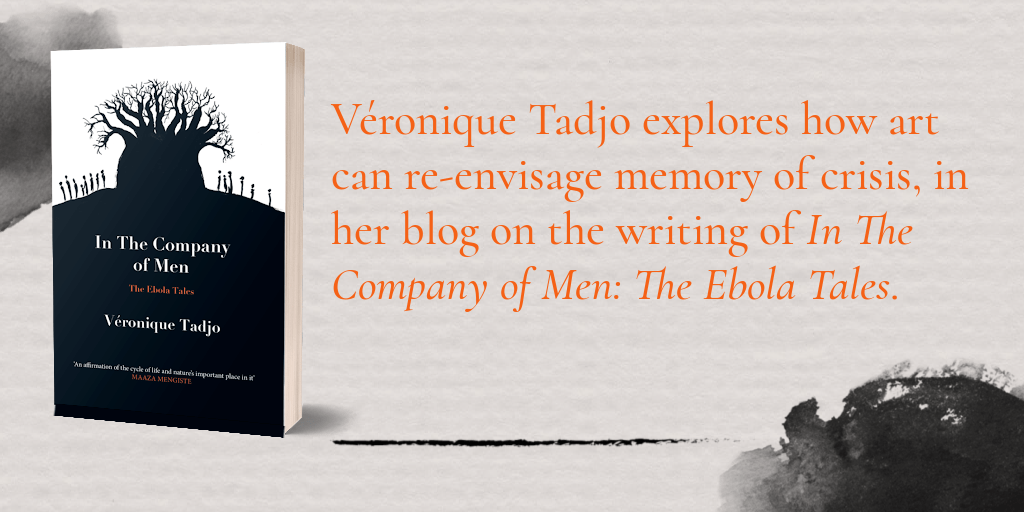In the Company of Men is based on the 2014 Ebola epidemic that took place in Guinea, Liberia and Sierra Leone in 2014. To tell the story of this devastating event, I chose to intertwine songs, legends, poems, and other genres like testimonies and documentary prose. Non-human characters (animals and trees) interact with human characters in the style of a contemporary fable.
Media coverage of the Ebola epidemic in West Africa was intense. Although it only occurred in one region, the whole continent was seen as the source of the infection. At the beginning, Western nations were slow to react to the health crisis. They thought that it would remain inside African borders. But then, some cases were recorded in Europe and in the United States as medics and some travellers came back home from the affected region. Panic set in and massive humanitarian aid started to come in. But when the epidemic was finally contained in 2016, a blanket silence fell over the events. Because of the stigma and suffering attached to the epidemic, it virtually became a taboo subject. However, as someone who has grown up in West Africa, I knew that there was much more behind the headlines and that it was necessary to pause and look back at the magnitude of what had happened. I wanted to revisit the events in a literary form that would take the readers to the environmental dimension of the epidemic. I was interested in highlighting the interdependence between humans and non-humans. My motivation was to work on the memory of the events so as to continue the conversation and learn lessons for a better prepared future. I also wanted to celebrate the resilience, courage and abnegation of all those who fought against the disease.
For the writing of In the Company of Men, I was primarily inspired by African oral traditions. It is the corpus of oral tales, myths, proverbs and legends that has been passed on from one generation to the next. It is centuries old. Yet oral literature can be adapted for new audiences. All the cultures of the world have been through that oral stage at one point or the other. Some societies have chosen to keep them alive while others have relegated them to dusty books. African oral literature has influenced a good number of contemporary writers of African descent. There is a lot of freedom in the ancient storytelling tradition. The storyteller (often a man) doesn’t tell the narrative in one go and doesn’t adopt a linear structure. Usually the storytelling takes place under a tree. In the Company of Men, the storyteller has become Baobab, the tree itself.
In periods of intense crisis, two forces are at stake: individual memory versus social memory. At times they clash. The official narrative becomes dominant preventing the expression of personal memories that may be at odds with the general view. Yet memory plays an important role in our ability to process trauma and to find a way forward. We cannot hide from the past and plural voices must be heard. If we look at the current Covid-19 pandemic, we see how documentation is given prime importance. Everybody tries to remember the pandemic in one way or the other: drawings of children in confinement, documentaries, creative films, photos, books, paintings, scientific articles, testimonies of ordinary citizen’s experience of confinement and loss, testimonies of medical staff, social media posts, etc. In each country, a national memory is being crafted and within it, personal memories. There is even the bigger, broader, global memory at play. This is because we, as a human species, know that even when we have finally succeeded in defeating the disease, we will have to refer to past events again and again. It is hoped that from now on we will have learnt to put the emphasis on prevention rather than emergency intervention. It is hoped that we will adopt a more holistic view of the world. It is hoped that vaccine nationalism will be a distant memory. It is hoped that solidarity and cooperation between individuals and between nations will be the order of the day. It is hoped that this will be ‘the new normal.’ In this sense, the Ebola epidemic speaks to the past and the present.
Véronique Tadjo
London
May 2021
